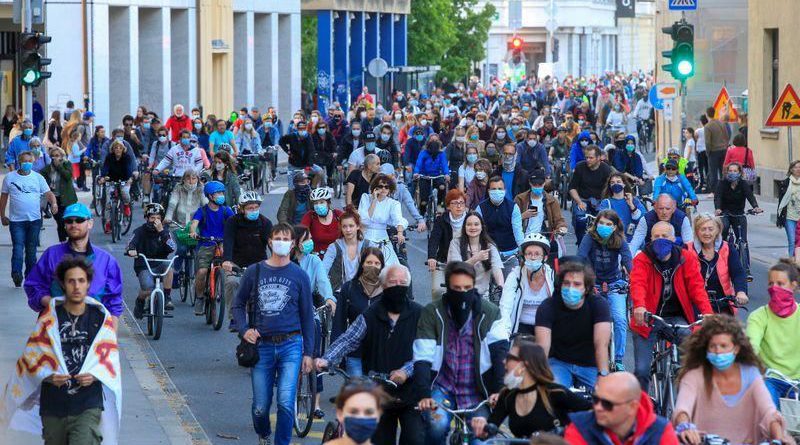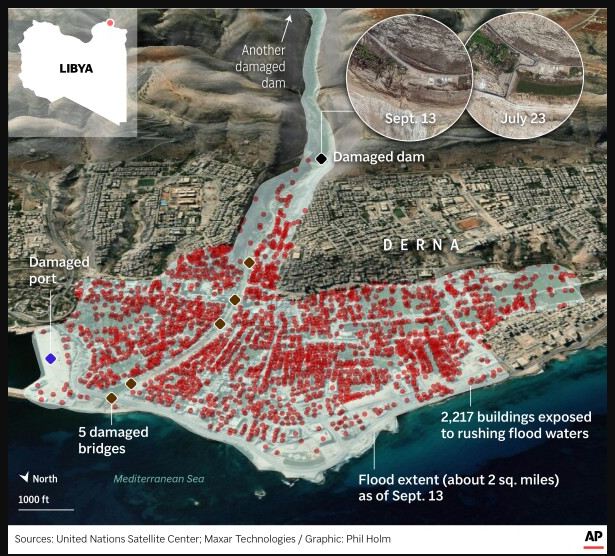Slovenia anti-government protests continue as country calls an end to epidemic
Ljubljana (Reuters) – Thousands of cyclists took over the centre of Ljubljana once again on Friday to protest against Slovenia’s centre-right government of Prime Minister Janez Jansa, less than a day after the government called an end to the coronavirus epidemic, while loosening restrictions.
Protesters blew whistles and honked bicycle horns as they waved Slovenian flags in the capital city. Many wore face masks. They claimed the government is clamping down on civil rights by attacking the media and limiting the rights of environmental groups. Some called for the government to resign.
Among other changes, the government is pushing for legal amendments that will limit the rights environmental nonprofits in participating in the administrative review of infrastructure projects.
The government claims the change is necessary to speed up Slovenia’s economic development, saying present legislation enables even small environmental organisations to significantly slow down important construction, like the building of factories or power plants.
“I am here because the government disgustingly abused the coronavirus crisis to reduce people’s rights and freedoms,” environmentalist Rok Rozman, who was among protesters, told Reuters.
Protests have taken place every week since last month when the national TV Slovenia reported government officials unlawfully favored some companies while purchasing face masks and ventilators. The government denies any wrongdoing.
Police said packed protests should not be held due to the coronavirus restrictions.
Slovenia has so far reported 1,465 coronavirus cases and 103 deaths. It is the first European country to call an official end to its coronavirus epidemic.
Although many restrictions that have been imposed in the middle of March have been lifted, people are still obliged to wear masks in indoor public spaces, disinfect their hands upon entering such spaces, stand at least 1.5 meters apart and are prohibited from gathering in groups of more than 50 people.
All shops, bars and restaurants will be allowed to open starting Monday, while some students will also return to school next week. Most shops, apart from food and drug stores, and all schools have been closed since the middle of March.
Many of Friday’s protesters also fear that the government will reduce media freedom as Jansa has over the past weeks called several journalists “liars” on his Twitter account. He is known for calling two female TV journalists “prostitutes” back in 2016 when he was the leader of the opposition. The government’s communication office has recently linked Slovenian media to the previous communist regime, causing public uproar.
In a Monday statement, Jansa said he supports more media competition, which is a “precondition to democratic social order,” suggesting most media is biased against his government. He also said that the protests violate legislation on infectious diseases, which obliges people to keep a distance from one another.
The police, which fenced off the government and the parliament buildings in the centre of the capital, was unable to immediately give an estimate of the number of protesters. Smaller protests were held in other cities. No violence has been reported so far.



